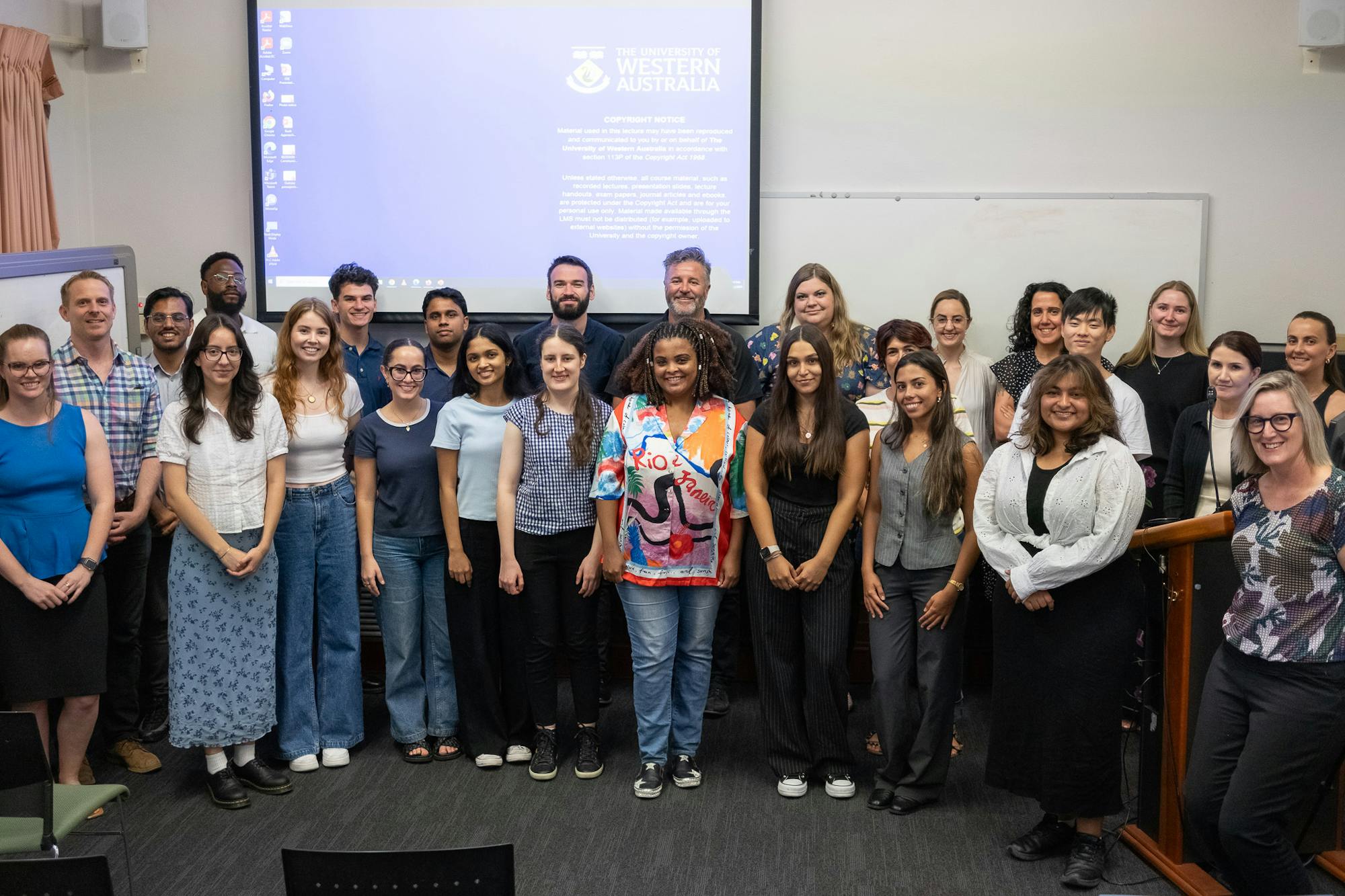Four groups of students presented proposals on innovative ways to help reduce poverty and inequity in Australia last week, after working over January and February with industry partners in the UWA McCusker Centre for Citizenship’s Approaches to Wicked Problems unit.
Along with principal partner, the Equity Project, staff from Communicare, Good Sammy Enterprises, Outcare and RUAH Community Services provided students with guidance and support through the unit and attended the final presentations at the Centre on 22 February.
Initiatives developed included a website with interactive features to mobilise community advocacy for increased income support, resources to improve employment outcomes for individuals with intellectual disabilities, a campaign to reduce stigma and increase support for people involved in the justice system, and a social-media-centric youth wing of the Equity Project raising awareness and encouraging advocacy for young people about inequity and cost-of-living pressures.
Annabella Jaramillo, majoring in Law and Society, and Criminology in her UWA Arts degree previously interned through the McCusker Centre for Citizenship with Consumer Credit Legal Service, and joined the Wicked Problems group working with RUAH Community Services.
“The brief for our group was coming up with effective ways to lobby the government to raise income support payments,” Annabella said.
“We produced a proposal and plan for a website that would mobilise advocacy in the community and educate community members on the shortfalls of current income support.
“Working with our project sponsor from RUAH for the unit was an experience I hadn’t had in university before. We were also able to visit RUAH’s homelessness hub and see the work they do, providing people with access to resources, referrals to services that can help, and practical support like a place to charge their phone,” she said.
Sara Kane, Advocacy Lead with AnglicareWA and Equity Project representative for the unit, praised the students for their achievements over the course of the intensive unit.
“Just like this unit last year, the Wicked Problems students have delivered impressive ideas and solutions in response to the project briefs,” she said.
“The templates and prototypes were fantastic and will be used immediately in our work. Some of the prototypes are already live, like the #equityprojectyouth campaign.
“I particularly appreciated the variety of additional solutions considered by each group before developing their final option – many of these can also be used in our work,” Ms Kane said.
Juliana Mello, a Commerce and Business Law student who is undertaking the Minor in Active Citizenship, worked with her group and industry partner Good Sammy Enterprises on solutions to improving employment outcomes for people with intellectual disabilities.
“Our ‘Wicked Problem’ was inequity in employment for people with intellectual disabilities, and we looked at bridging existing gaps between individuals with disabilities, employers, and services like Good Sammy,” she said.
“The solution we presented was a strategy plan and resources to help Good Sammy know what industries could provide jobs, and to help support people with disabilities looking to find employment.
“I liked the more hands-on experience in this unit; if we wanted to learn we had to really go after it ourselves, and as a result I felt more immersed in the issue we were working on. You get to meet new people, and there’s field work and creative thinking required to come up with something.”
McCusker Centre for Citizenship Director, Michelle Scott, said that the Approaches to Wicked Problems unit, first offered in 2020, was a unique opportunity for students to develop as active citizens and community-minded leaders, while gaining outstanding real-world experience in an academic setting.
“We are fortunate to have the support of partner organisations who are committed to more equitable and connected communities in WA, and who invest time and expertise working alongside students to develop effective solutions to social issues into the future.”

